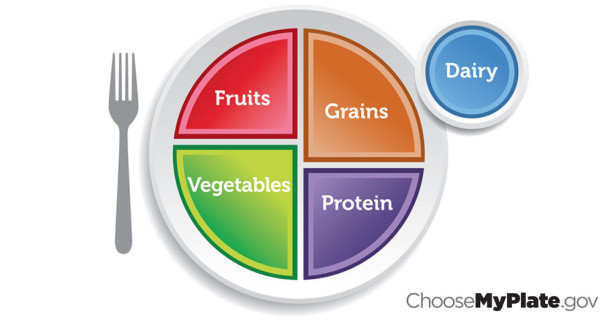
Families that eat together, stay together. In the last 15 years, researchers have confirmed what parents have known for a long time: sharing a family meal is good for the spirit, the brain and the health of all family members. The challenges to family dinners are time, technology and picky eaters. Here I have provided a set of guidelines that have helped me balance life, healthy eating and family meals.
As a young dietitian I read the book “Secrets of Feeding a Healthy Family: How to Eat, How to Raise Good Eaters, How to Cook” by Ellyn Satter MS RDN LSSW. Ellyn Satter is a Registered Dietitian Nutritionist and Family Therapist and is recognized authority on eating and feeding.
This book really made an impact on me for many reasons.
- I liked how she had so many ideas on how to deal with picky eaters, overweight family members and other challenges.
- I liked how simple the ideas were.
- The guidelines make it easy for parents to know what they are in charge of.
- Her tips on how to cook meals and not short order cook were easy to follow.
The Division of Responsibility for toddlers through adolescents
- The parent is responsible for what, when, where.
- The child is responsible for how much and whether.
Fundamental to parents’ jobs is trusting children to determine how much and whether to eat from what parents provide. When parents do their jobs with feeding, children do their jobs with eating:
Parents’ feeding jobs:
- Choose and prepare the food.
- Provide regular meals and snacks.
- Make eating times pleasant.
- Step-by-step, show children by example how to behave at family mealtime.
- Be considerate of children’s lack of food experience without catering to likes and dislikes.
- Not let children have food or beverages (except for water) between meal and snack times.
- Let children grow up to get bodies that are right for them.
Children’s eating jobs:
- Children will eat.
- They will eat the amount they need.
- They will learn to eat the food their parents eat.
- They will grow predictably.
- They will learn to behave well at mealtime.
Now that I have been a dietitian for almost 20 years I still feel that these concepts should be part of every family’s lives. As a parent for 11 years I have fed my family using the Division of Responsibility Rules. I find they really work. It takes the pressure off me as a parent to make sure my children eat. My job is to make sure they have healthy foods (most of the time) and to prepare meals
So how do you make it work? Here is an example of how I make the Division of Responsibility work. My older daughter does not like pasta. I have made it many different ways with different sauces but to no avail. But, because the rest of my family enjoys pasta, I continue to make it. In order to prevent table wars, I have learned to balance our meals by including foods she likes. This allows me to continue to introduce a food while not having to be a short order cook. Like you, my life is too busy to be doing this. I do have her take a small amount of pasta, as I know that it can take up to 10 exposures to a food before a child will accept it. I expect her to not make comments or faces and to use good manners. This is a life skill she needs to learn. What if she has dinner with the President someday???? As a parent I have done my job, prepared a healthy meal in a pleasant environment. My daughter has done hers, put food on her plate, ate until she was full and behaved appropriately.
Raising a family is hard, balancing life is hard, eating healthy is hard. To me, this system helps bring balance to our lives and encourages a healthy, pleasant meal time.


